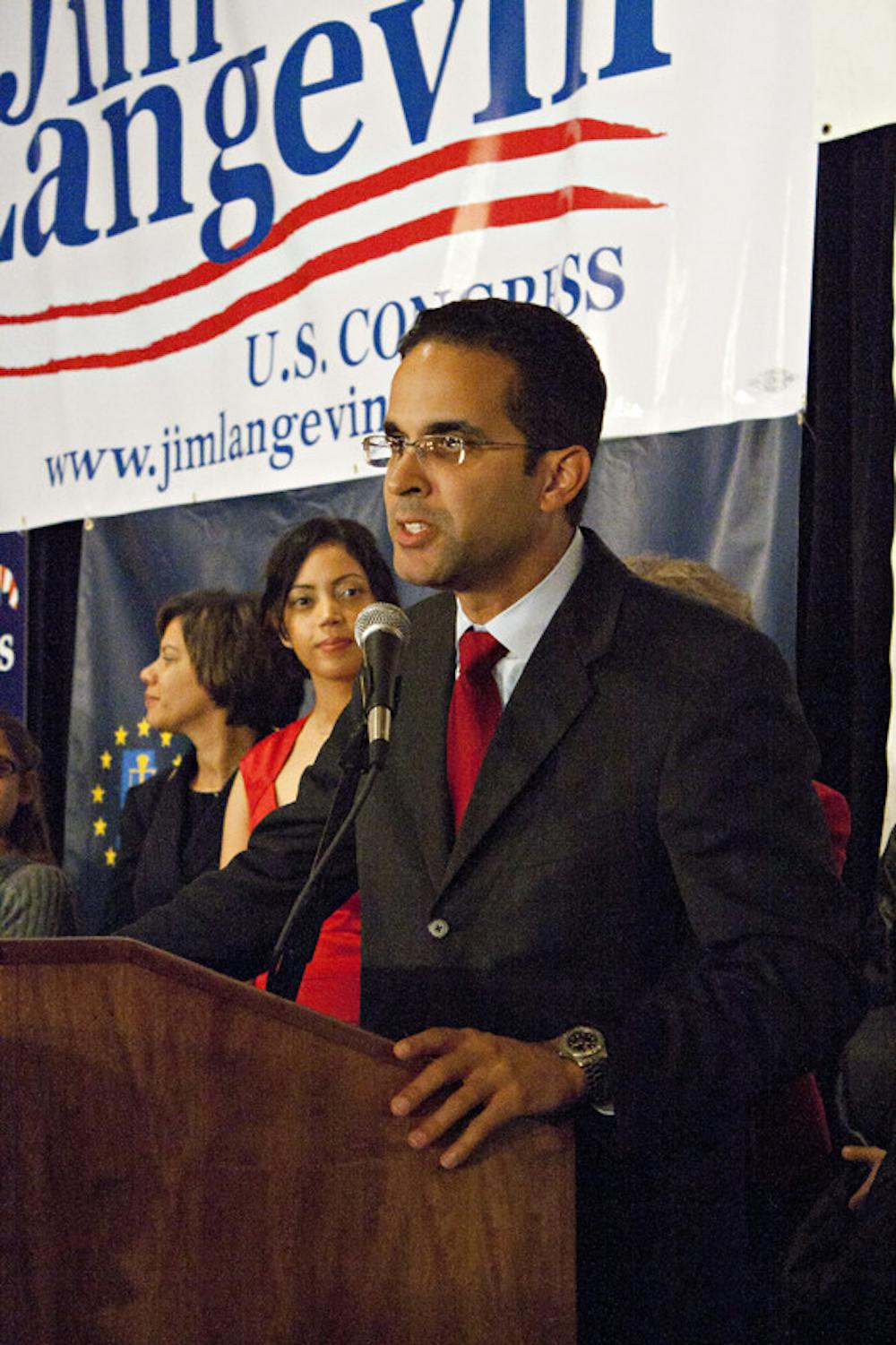Providence Mayor Angel Taveras has announced that if elected governor next year, he would expand the state’s pre-kindergarten program, with a goal of enrolling 76 percent of the state’s eligible children in pre-kindergarten by the end of his first term in office and accommodating all eligible students by 2023.
The plan, announced last Tuesday at a YMCA Early Learning Center in Pawtucket, calls early childhood education a “building block for economic development” and cites recent studies that show positive correlations between enrollment in early childhood education programs and higher rates of employment and college attendance.
“It is great to hear early childhood education being discussed so early in the election cycle,” wrote Kate Brewster, executive director of the Economic Progress Institute, in an email to The Herald. “Not only is this issue so important for the future of our children, but it is also a great long-term strategy to improve our economy.”
In 2012, Rhode Island ranked 40th in the United States in access to pre-kindergarten for 4-year-olds, according to a report by the National Institute for Early Education Research.
Currently, about 1,400 children in the state are enrolled in publicly funded pre-kindergarten programs, 1,200 attend school district programs funded by federal and local sources and about 230 attend state-funded schools that enroll students by lottery, said Elliot Krieger, public information officer for the the Rhode Island Department of Education. An additional 5,200 4-year-olds eligible for pre-kindergarten are not enrolled in any program, according to the plan.
Taveras plans to increase the number of state-funded pre-kindergarten slots from around 230 in fiscal year 2014 to 700 by 2016 and 2,650 by 2019. The expansion would cost the state $6.5 million in its first year of implementation, rising to additional annual costs of $24.6 million by year four. The total cost would amount to less than 1 percent of the state’s education budget, according to the plan.
“This is really a drop in the bucket of the overall budget and certainly within the budget of the school system,” said Sen. Gayle Goldin, D-Providence.
Taveras is one of many public officials to have recently called for universal pre-kindergarten. Experts called New York City Mayor-elect Bill de Blasio’s proposal to expand universal pre-kindergartem in New York City — which would be funded by increasing the state income tax for those making more than $500,000 per year — key to his victory.
In February, Barack Obama released a proposal to increase the tobacco tax to fund child-care programs for all 4-year-olds within 200 percent of the poverty line.
Rhode Island has made efforts in recent years to increase enrollment in pre-kindergarten programs. In 2009, Rhode Island launched a state-funded pre-kindergarten pilot program and enrolled students in seven classrooms by lottery. In 2010, the General Assembly signed a law to increase state funding for these programs by $1 million each year to create 1,000 child care slots by 2020. Taveras’s plan goes further than the General Assembly bill and more than doubles the pace of expansion.
Taveras “has been from the beginning of his administration absolutely prioritizing early childhood education,” said Rebecca Boxx, director of Providence’s Children and Youth Cabinet, a commission on early childhood education convened by then-Mayor David Cicilline and expanded by Taveras. “When you think about what it costs to provide quality early childhood education versus the costs to remediate when students fall behind, or even worse, when they fail to graduate, it just makes much more sense from an economic perspective.”
Taveras has said he hopes to fund the programs using a small portion of the state’s allocated Title I federal funding for low-income students as well as additional federal grants, foundation grants and state savings. The plan proposes raising capital by reducing enrollment at the Rhode Island Training School, a boarding school for struggling youth, creating drug courts to reduce criminal justice costs, establishing a competitive bidding process for contracts to provide state vehicle maintenance and decreasing employee overtime at state hospitals and prisons.
Taveras has already proven his ability to conserve government funds by altering staff structures, Goldin said, adding that hiring more firefighters for Providence reduced overtime expenditures and created good jobs.
Taveras has also pledged to fully fund the 2012 Full Day Kindergarten Accessibility Act, which assists school districts in establishing full day kindergarten programs. In the 2012-2013 school year, 68 percent of Rhode Island children attended full-day kindergarten, a figure below the 77 percent national average, the plan said.

ADVERTISEMENT




